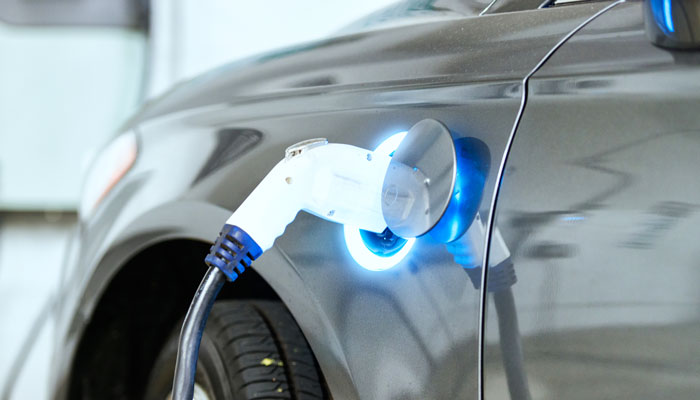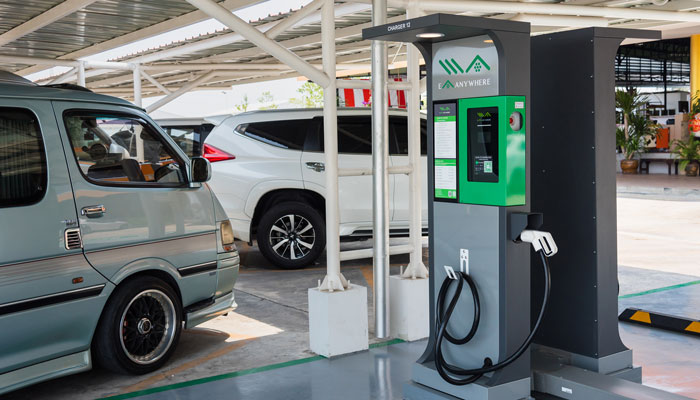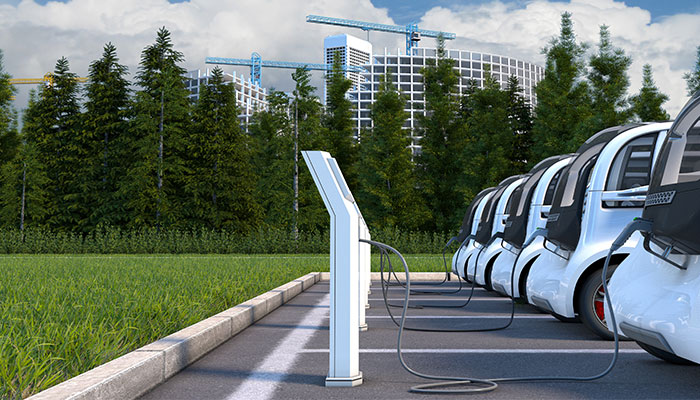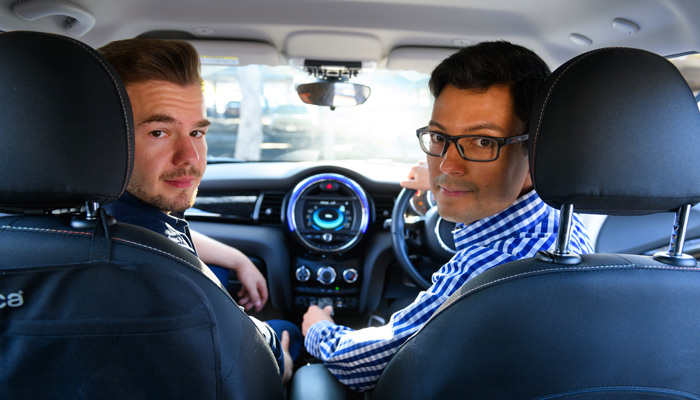Electric vehicles could become a significant part of the grid with large car parks providing storage, helping smooth out generation from other sources while the car’s owners shopped or went to work, research at Macquarie University shows.

One big battery: Cars are parked up 95 per cent of the time, says Professor Town, making them an ideal battery source.
A typical car park at a large shopping centre with 4,500 electric vehicles plugged into the grid could store almost twice that of the Tesla battery in South Australia (currently one of the world's biggest lithium-ion batteries), effectively becoming a power plant right in the city, says Professor Graham Town of Macquarie’s School of Engineering.
“Most people don’t think about the positive impact vehicles can have for electricity storage, they only think about them draining energy,” he says. “They are actually a huge storage resource - especially if cars continue to be used the way they are now to commute to work or to the shops and back, where they are stationary 95 per cent of the time.”
Professor Town will present his findings at the NSW Annual Electric Energy Conference today (Tuesday 27 November). He’ll speak about his research and collaboration with other academics, to government, power companies, electric car manufacturers and battery manufacturers.
The Macquarie research adds to the case for more rapid adoption. Some countries in Europe, China and Japan, and California in the US, have adopted policies to encourage electric vehicles including subsidising manufacturers and consumer purchases. Australia lags behind.
Electric vehicles accounted for only 0.2 per cent of new vehicle sales last year compared to 52 per cent in Norway that are pure electric cars or hybrids. There are only 6,500 electric vehicles currently in use in Australia and 1.6 million worldwide.
‘We could reduce Greenhouse gas emissions by about 20 per cent’
Embracing electric vehicles presents a “golden opportunity” for Australia’s to cut its carbon footprint, Professor Town says. “If we could convert all our fossil-fuelled transport to electric transport we could reduce all our Greenhouse gas emissions by about 20 per cent.”

All revved up: The sale of electric cars is on the rise as countries worldwide begin to ban the use of petrol and diesel vehicles.
Professor Town was involved in research early 2018 in Denmark, which has the world’s first commercial electric-vehicle-to-grid trial, looking at how government service fleet vehicles can be used as a power source.
“Their vehicles are like our council service vehicles that would go out on a service call and then be stationary most of the day plugged into a power source,” he says. “The value of those vehicles giving back to the grid was equivalent to about $200 AUD a month per vehicle.”
Globally, public policy has played a major role in the 40 per cent increase in electric vehicle sales, including future bans on conventional vehicles. Norway and the Netherlands plan to ban the sale of new petrol and diesel vehicles as soon as 2025. The UK and French governments will do so by 2040.
Electric cars are getting cheaper
The main obstacles people cite to purchasing an electric vehicle, Professor Town says, include the upfront cost, which is more expensive than an internal combustion engine vehicle.
But that cost is rapidly decreasing as players such as Toyota, Nissan, General Motors, Volkswagen, Jaguar and Land Rover increase production and others enter the market. Electrical vehicles are expected to cost the same as conventional vehicles by 2025.
The other issue is “range anxiety” - that their electric cars wouldn’t have the charge to take them for the length of their journey.
“We’ve looked at NSW Transport figures and if people continue using cars in the future the same way they use them today - to commute to work and to go shopping - then 88 per cent of trips they do with a conventional vehicle they could do with an electric vehicle with no problems and in most cases they would have three to five times the charge they needed to get home,” he says.
Professor Town hopes his research adds to the well-known benefits of electric vehicles as sustainable transport.
“If we can convince people that electric vehicles can also be a useful source of battery storage that will enable increased penetration of renewable generation into the grid, then I hope we can get some practical research trials happening in Australia,” he says.
Graham Town is a professor at Macquarie University's School of Engineering.



